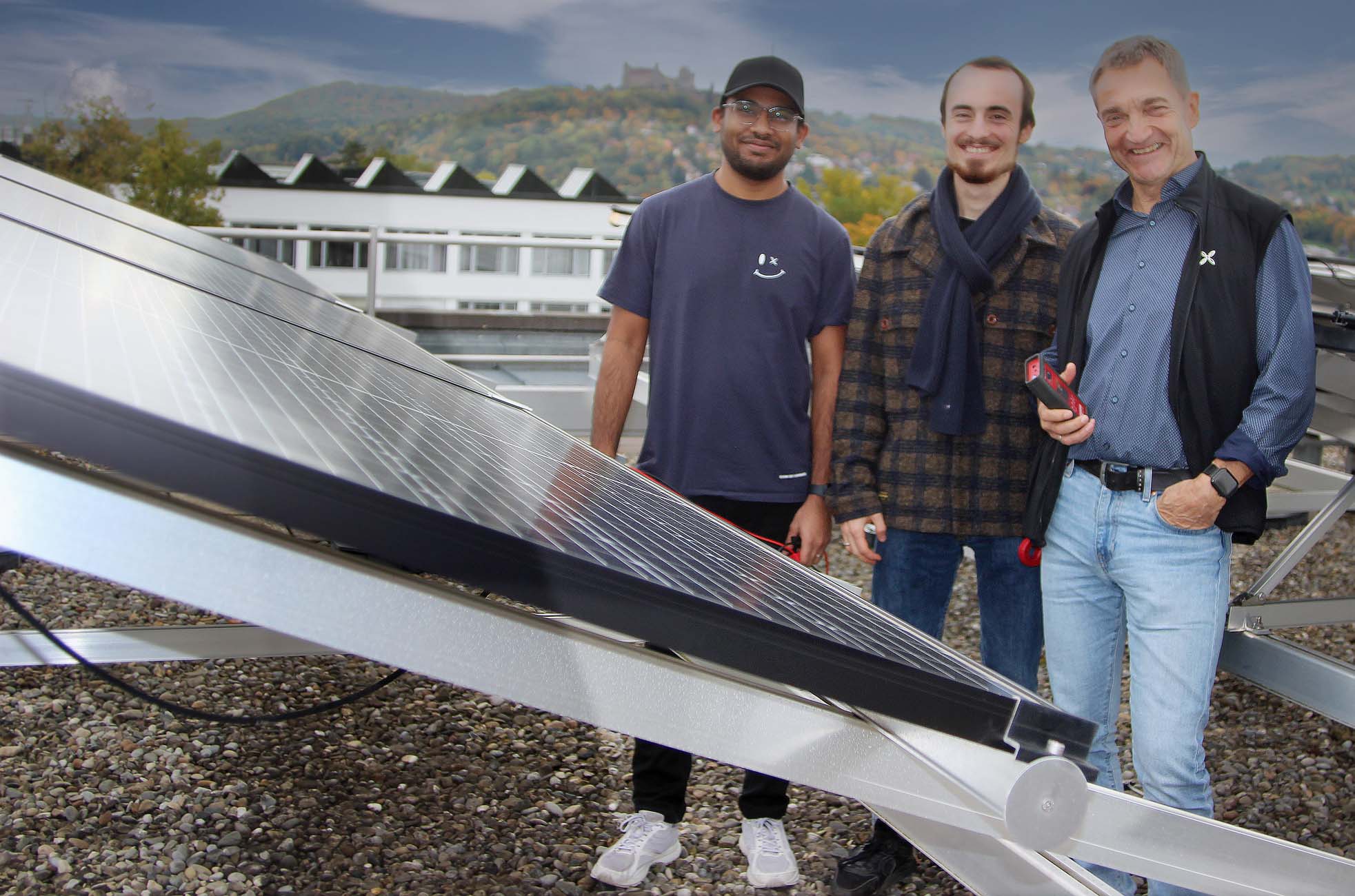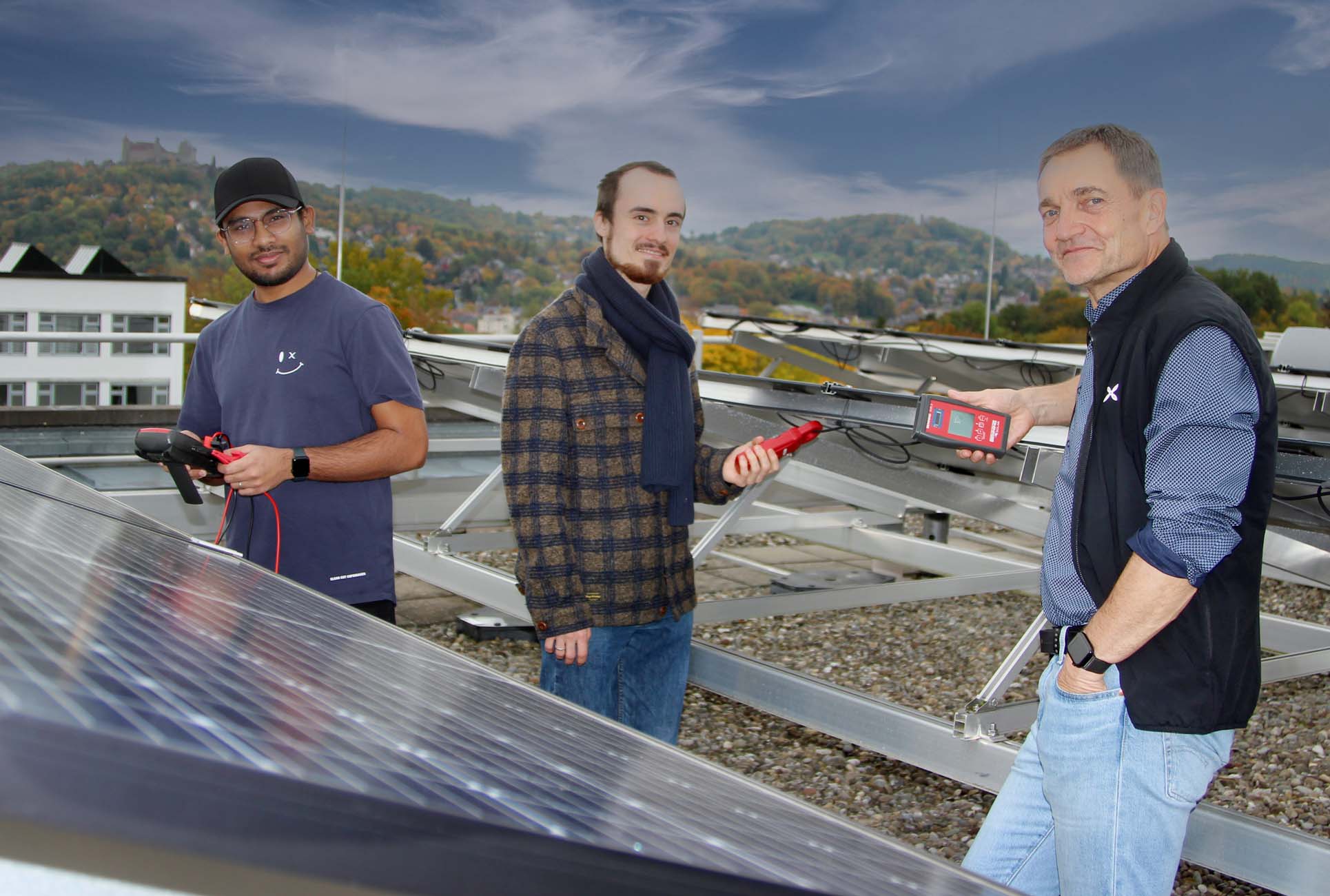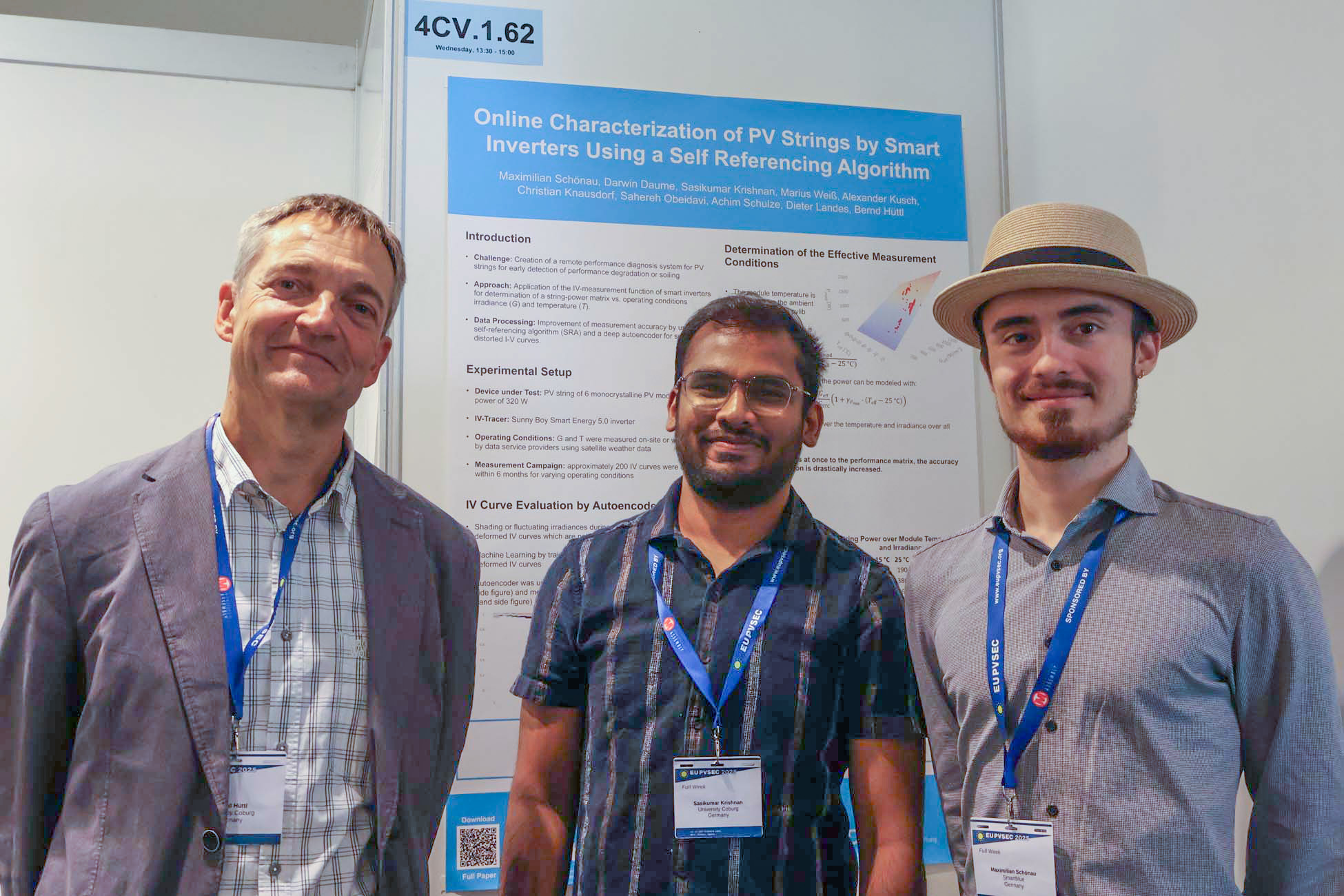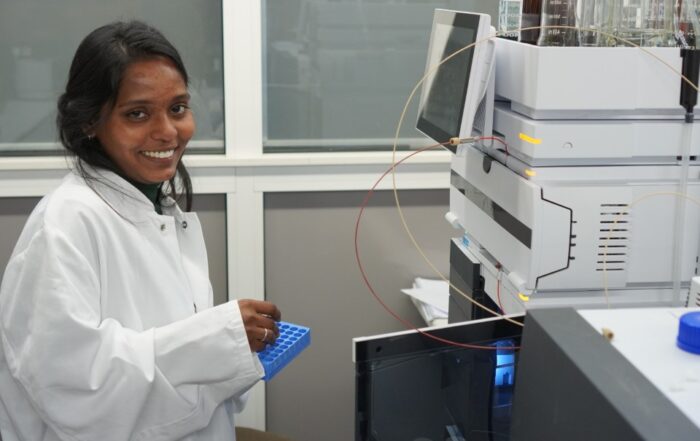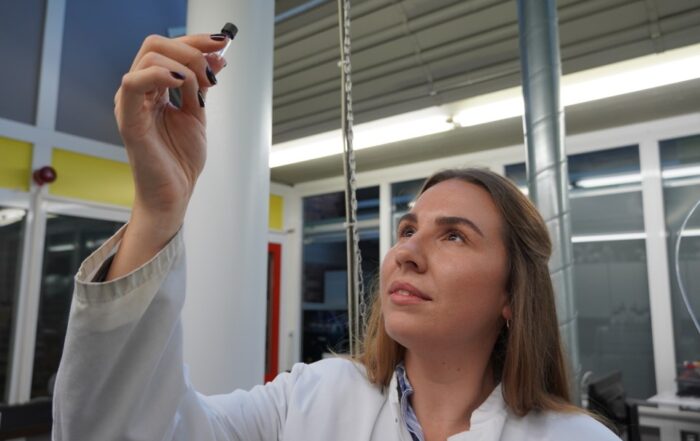22. October '25
(Annerose Hüttl)
A young engineer from Chennai in India India overcomes language barriers and new ways of learning – and eventually presents his research at an international conference in Spain. Sasikumar Krishnan shares how he came to the Coburg University of Applied Sciences and how his path into solar energy research began here.
You decided to pursue a master’s degree at Coburg University at a time when there was no such thing as the special bachelor’s program Electrical Engineering for Renewable Energies taught in English. Your journey is super inspiring, especially for students from India who are thinking about studying abroad. How did you first get the idea to study in Germany, and what made you choose Coburg in particular?
Sasikumar Krishnan: Germany’s known for being strong in engineering, so it felt like a solid choice. I was already studying at the University of Essen back then, so I was familiar with the system. What really drew me to Coburg was their focus on research in renewable energies—that’s exactly the area I wanted to dive deeper into.
How did you find out about the program?
Honestly? I read the module handbook! (laughs). I was specifically looking for something in renewable energies. Later, I realized Coburg is a university of applied sciences. In India, we don’t really have that distinction between traditional universities and applied sciences institutions. It was new to me.
Were there any challenges in the application process?
The whole application process was online and super smooth.
Why did you choose renewable energies as your focus?
Back home in India, renewable energy is booming right now. I’d love to be part of that movement and help drive it forward at one of the leading companies there.
Looking back: Is there anything you wish you’d known before starting your studies that would’ve made things easier?
A lot of Indian students – myself included – don’t have much financial flexibility. It would’ve been super helpful to know more about earning opportunities during the program. For example, I had no idea that the university offers paid student assistant jobs (HiWis).
Did you encounter any particular difficulties when entering Germany or dealing with the authorities?
No. The German authorities were very friendly and there were no difficulties whatsoever.
What was it like with your apartment and living situation?
I got a place in a student dorm right away and felt very comfortable immediately.I found accommodation online without any major problems.
How did you get ready for the first few semesters – both in terms of the subject and the language?
Well, since the whole program was in German, it was definitely a tough start. In the beginning, I couldn’t follow much during the lectures. I’d go back and work through the Moodle materials afterward – that really saved me. Moodle is the university’s online learning platform, where all lecture notes and assignments are uploaded. Having access to those resources was a huge help.
What was the biggest challenge during your studies?
Honestly, it was the language barrier during lectures. German isn’t easy, and trying to keep up in a technical subject made it even harder. Again, Moodle was a gamechanger – I’d review everything there.
How did you go about learning German, and what helped you the most?
It’s still a work in progress! I’ve been learning bit by bit, but it’s definitely one of the hardest parts of the whole experience. Talking with some classmates is still tricky – Franconian really throws me off. So, please go easy on the dialect, folks!
Was it easy to make friends with German students?
In India, friendships – especially among students – are super important and tend to form more naturally. Here, it takes a bit more time and effort.
What else was different between life in India and life in Germany?
The weather was a shock – 20 degrees is considered cold in India, and summers can hit 40 degrees. And the traffic! Everything’s flipped here. I kept looking the wrong way when crossing the street or waiting for the bus. Took a while to adjust!
What about free time – how do you unwind outside of your studies?
Honestly, I don’t get a lot of free time. But I did take a painting and drawing class at the adult education center in Coburg a while back, and I really loved it. It was a nice break from all the technical stuff.
Recentrly you were at the “European Photovoltaic Solar Energy Conference and Exhibition” (EU PVSEC 2025) trade fair in Bilbao.
That was my first scientific conference, an impressive experience! We presented the yield forecast for solar modules developed at a research project at Coburg university. That’s what I wrote my master’s thesis about. My part was data analysis and programming using AI tools. For example, countless weather data had to be evaluated.
Who did you attend the fair with?
Those who worked on the project were also there: my professor and a fellow student. A Highlight was the poster session. Our poster explained our research approach and we discussed it with other interested scientists; I was very excited.


